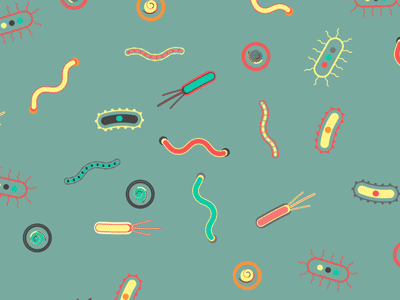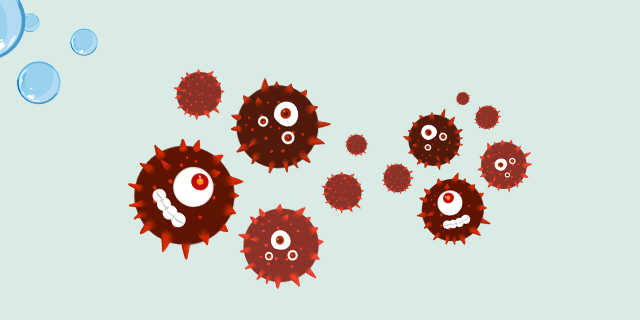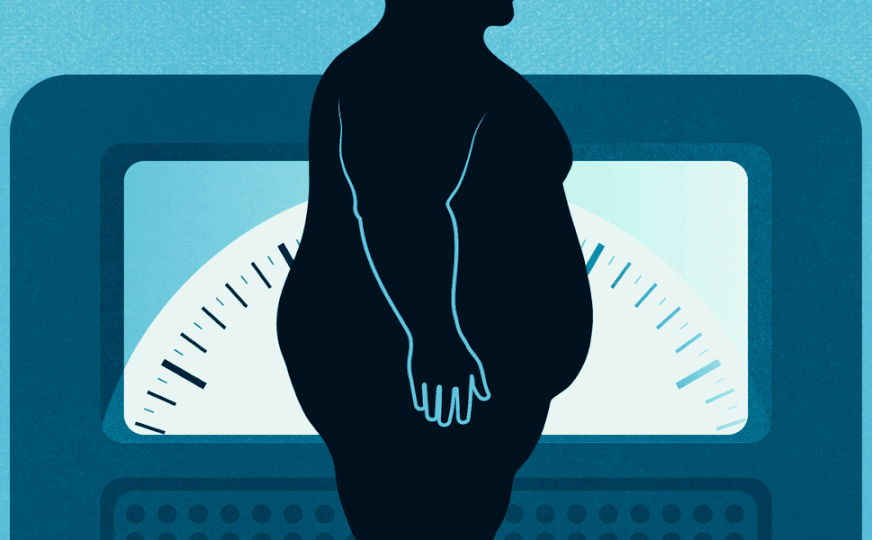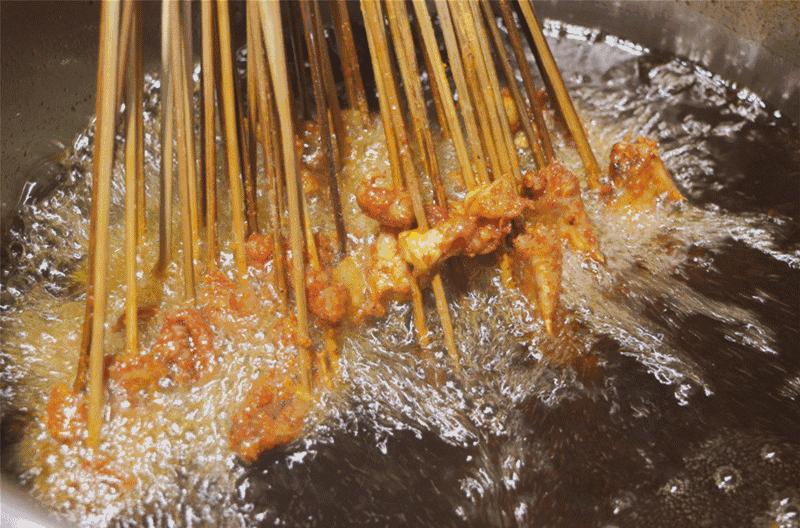No one can escape the invasion of inflammation! 1 in 6 cancers are associated with it
“Inflammation” is a symptom that everyone has experienced, such as rhinitis, tonsillitis, gastroenteritis… Strictly speaking, inflammation is not a disease, but a common clinical-pathological process.
We live in a world full of bacteria, and arguably no one is immune to inflammation. Some people think that inflammation is a small problem, and it will go away after a while; some people regard it as a beast of a flood, and they start taking medicine at the slightest sign.

1 in 6 cancers are caused by inflammation
Inflammation belongs to the basic immune response and is a basic pathological process mainly based on defense response that occurs when the body is subjected to certain stimuli (such as trauma, infection, and other damage factors).
When tissue is damaged, an inflammatory response is triggered to prevent the spread of infection, remove necrotic tissue, and restore organ function. If the body does not have an inflammatory response, the body cannot control the infection and repair the damage.

Leaving inflammation unattended can have serious consequences:
When the local lesions of inflammation are severe and the pathogenic microorganisms spread in the body, there will be systemic reactions, such as fever, increased heart rate, increased blood pressure, chills, anorexia, etc. Severe systemic infections can also lead to sepsis and even shock.
Inflammation is an important part of the development of some major diseases. According to a report by the International Cancer Research Center under the World Health Organization, one-sixth of the world’s cancers are caused by bacterial and viral infections, and most of these infections are what we commonly call “inflammation.”
Inflammation is the source of many diseases
It is generally believed that a controlled inflammatory response is beneficial. Once out of balance, some inflammatory factors will be produced, causing damage to normal organs and tissues.
diabetes
Inflammation causes insulin resistance; in addition, inflammation stimulates the abnormal metabolism of fat cells, secretes excessive inflammatory factors, further damages pancreatic islet cells, accelerates the development of diabetes, and forms a vicious circle.
Nervous system disease
Uncontrolled inflammation produces neurotoxicity that damages neuronal cells. For example, some cells in the brains of Alzheimer’s patients release inflammatory factors that exacerbate neuronal degeneration.
obesity
When adipose accumulation secretes excess adipocytokines, it causes systemic chronic inflammation, and adipose tissue macrophage infiltration exacerbates this chronic low-grade inflammatory state.

Cardiovascular diseases
The root cause of common cardiovascular diseases is the intrusion of inflammatory factors into the blood vessel wall caused by immune disorders, thereby causing the onset of diseases such as atherosclerosis and coronary heart disease.
cancer
In chronic inflammation, repair and regeneration require cell proliferation, and the more cells divide, the greater the chance of errors in DNA replication, increasing the odds of producing cancer cells. If the tiny cancer cells accumulate over time, they will form a malignant tumor.
depression
Inflammation is one of the causes of depression, and even a slight increase in chronic inflammation increases the risk of depression. During the onset of depression, both inflammatory cytokine release and inflammatory responses are active.
6 Eating Habits That Are ‘Pro-Inflammatory’
The daily diet is closely related to the occurrence of inflammation. The following 6 eating habits may let inflammation sneak up on you.
eat too finely
Bread, rice, etc., these highly processed staples are rich in refined carbohydrates and have a high blood sugar response, which can lead to an elevated inflammatory response.
High-sugar, high-salt diet
High-sugar foods such as cakes, chocolates, and desserts will make blood sugar fluctuate greatly, leading to increased levels of insulin, adrenaline, and glucocorticoids; it will also consume a large number of B vitamins in the body, leading to increased inflammatory responses.

The Institute of Medical Laboratory Animals of the Chinese Academy of Medical Sciences found that high salt can activate platelets and activate cells involved in inflammatory responses, thereby causing vascular inflammation.
Eat processed meat
Bacon, cured meat, ham, barbecue, etc., all bring pro-inflammatory substances, including polyaromatic hydrocarbons, heterocyclic amines, etc.
Beef, mutton, pork, and other red meats are rich in saturated fat, and long-term intake of too much can easily lead to obesity, which is also a special kind of inflammation.
eat too many snacks
When there are words such as margarine, margarine, non-dairy creamer, vegetable butter, hydrogenated vegetable oil, cocoa butter substitute, etc. on the package, there is a high probability that these foods contain trans fatty acids.
Trans fatty acids can increase the levels of various inflammatory factors, which may be related to the disturbance of lipid metabolism pathways.
Eating fast food and fried food
Common fast food and some fried foods are high in saturated fat, which not only promotes inflammation, but also has adverse effects on body weight, cardiovascular system, and immune system.

frequent drinking
Not only does alcohol burden the liver, but it also kills normal healthy bacteria in the gut, disrupts the structure of the gut microbiome, and induces an inflammatory response.
Do 4 things to “anti-inflammation” in the body
The causes of the inflammation can be divided into endogenous factors and exogenous factors.
▶Endogenous factors: DNA damage, abnormal telomere function, epigenome damage, abnormal mitotic signaling and oxidative stress, etc.;

▶Exogenous factors: infection, external environment and poison stimuli, bad eating habits, etc.
Endogenous factors are difficult to change, but we can avoid or control inflammation by reducing the influence of exogenous factors.
away from polluted environment
Physical factors such as high temperature, low temperature, ultraviolet rays and radiation, biological factors such as viruses, bacteria, fungi, and parasites, chemical factors such as strong acids, strong bases, and formaldehyde, as well as the improper use of drugs and other biological agents, may all cause inflammation.
Avoid contact with harmful substances in life, clean your home frequently, ensure that the indoor environment is clean and tidy, do not use drugs indiscriminately, and try not to use pesticides, hair dyes, and other products.
learn to deal with stress
Continued psychological stress may disrupt the body’s ability to regulate inflammatory activity.
To maintain a positive and healthy attitude towards life, sleep 7-8 hours a day, learn to regulate your emotions when things go wrong, and seek help from a psychiatrist if necessary.
form a habit of exercise
When muscles contract, they can secrete some cytokines and actin with a smaller molecular weight. These substances enter the blood and can reduce the inflammatory response of the whole body to a certain extent.
When exercising, you should not only do aerobic exercise but also pay attention to enhancing muscle strength. It is recommended that physically able people do some weight-bearing exercises appropriately.

develop good eating habits
Try to get rid of the “pro-inflammatory” diet mentioned earlier, and gradually develop good eating habits.
Dr. Andrew Weir, a professor of medicine at the University of Arizona in the United States, has a famous “anti-inflammatory food pyramid” theory.
Fruits and vegetables have the best anti-inflammatory effect, and consume at least 4 to 5 servings of vegetables every day, about 80 grams per serving;
Coarse grains, pasta, and beans are second, and should be eaten every day;
Organic canola oil, nuts, and other healthy fats rank third, and should consume 5-7 servings per day;
Fish and seafood can consume 2 to 6 servings per week (1 serving is about 113 grams).
In addition, it is necessary to reduce the consumption of instant noodles, biscuits, fast food, and other foods, and stay away from tobacco and alcohol.
If you suffer from severe acute inflammation or a disease caused by acute inflammation, it is difficult to control only by changing your lifestyle. You should seek medical treatment in time and receive treatment by the doctor’s advice to avoid various complications caused by worsening inflammation.